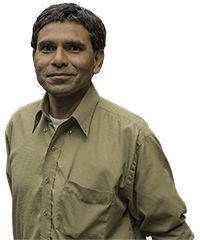Opinion
Mishra’s Mishrash: Human rights are no longer important in Denmark
This article is more than 4 years old.

The state are in the business of delivering babies. Let’s hope it’s not as bad as their record with parcels (photo: thenounproject.com)
The present Danish government has sent a proposal before Parliament to make it possible to forcefully remove a child from its mother’s arms before she is even given the chance to breastfeed the child.
A child in the welfare state of Denmark is now first and foremost the responsibility of the state, and if a psychologist writes a subjective report indicating that the mother does not possess the qualities necessary to be a good parent, then the Danish authorities can come and forcefully remove the child from its parents right after the birth of the child.
Convention-breaking cuts
As the practice is now, parents are given the chance to prove if they are capable of taking care of their children, but that right will not be respected in the future, according to a new proposal being submitted to Parliament.
The proposal addresses ‘tvangsbortadoptere børn’, which literally means the forced removal of children from their biological parents. After this they are handed to foster parents, who after just three years can obtain full custody of the child, thereby breaking the connection entirely with the biological parents.
Even though the Danish government is doing this in the best interest of the child, it is undoubtedly a clear-cut violation of the child’s right to have regular contact with their biological parents, according to the United Nations Convention on the Rights of the Child to which Denmark is a signatory.
Bottom of the hierarchy most at risk
Who would have imagined that if women came to power, there would be less compassion and forgiveness in society? The Danish government is led by a female prime minister. Astrid Krag, the minister of social affairs, is also a woman, but the draconian laws seem drastic and totally merciless towards a mother who gives birth to a child.
It is surely precarious territory. Historically, governments that have taken such action have been found liable and ordered to pay substantial sums by courts unconvinced there were substantial grounds for removing the children from their biological parents. For example, the European Court of Human Rights has previously ordered the governments of Sweden and Norway to pay huge compensation settlements.
So who would be most affected by these laws? Unfortunately the answer is immigrants – particularly those who cannot speak the Danish language adequately, and especially those who cannot afford a lawyer. People with a diagnosis (it could be something relatively routine like ADHD), along with recovering drug addicts and alcoholics, will most certainly be affected, and more often than not it will be people who are unemployed, uneducated etc – in other words, those at the bottom of the social hierarchy.
Academics arguing against
Per Schultz Jørgensen, who is a respected academic in this field, has warned that these steps to improving the social upbringing of a child are superficial and unneeded.
Unfortunately, according to Jørgensen, the government has lost focus regarding what actually demands attention and action. Instead of focusing on an area that is well taken care of, the government, if it really has good intentions to improve children’s rights, should take measures to strengthen the organisation Familieretshuset, a state-sponsored mediator between parents who cannot come to an amicable agreement regarding how much time a parent is supposed to spend with the child after divorce or separation. It is this area that needs attention – not the forceful removal of a child.
Children in Denmark often have to wait years before an amicable settlement secures them the right to have contact with both of their biological parents. The government should allocate more resources to strengthening the organisation responsible for peaceful settlements of binding deals. It is this social aspect of a child’s growth that needs attention. Children and parents have to wait for almost a year before both parents are given a first meeting to settle their differences.
In that perspective Denmark is an interesting country. If push comes to shove, you can get a passport within a week, but you may have to wait at least a year before you can see your child.

About
As a regular contributor to the Times of India, the country’s largest newspaper, Mishra is often sought-after by Danish media and academia to provide expertise on Asian-related matters, human rights issues and democratisation. He has spent half his life in India and the other half in Denmark and Sweden.










































